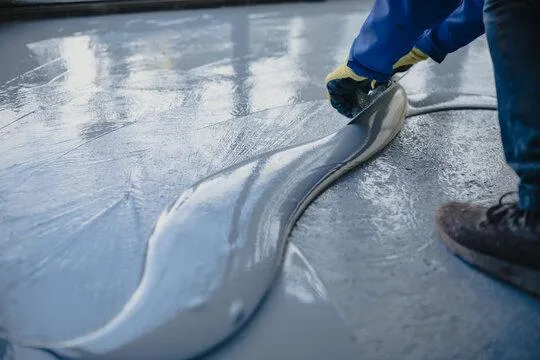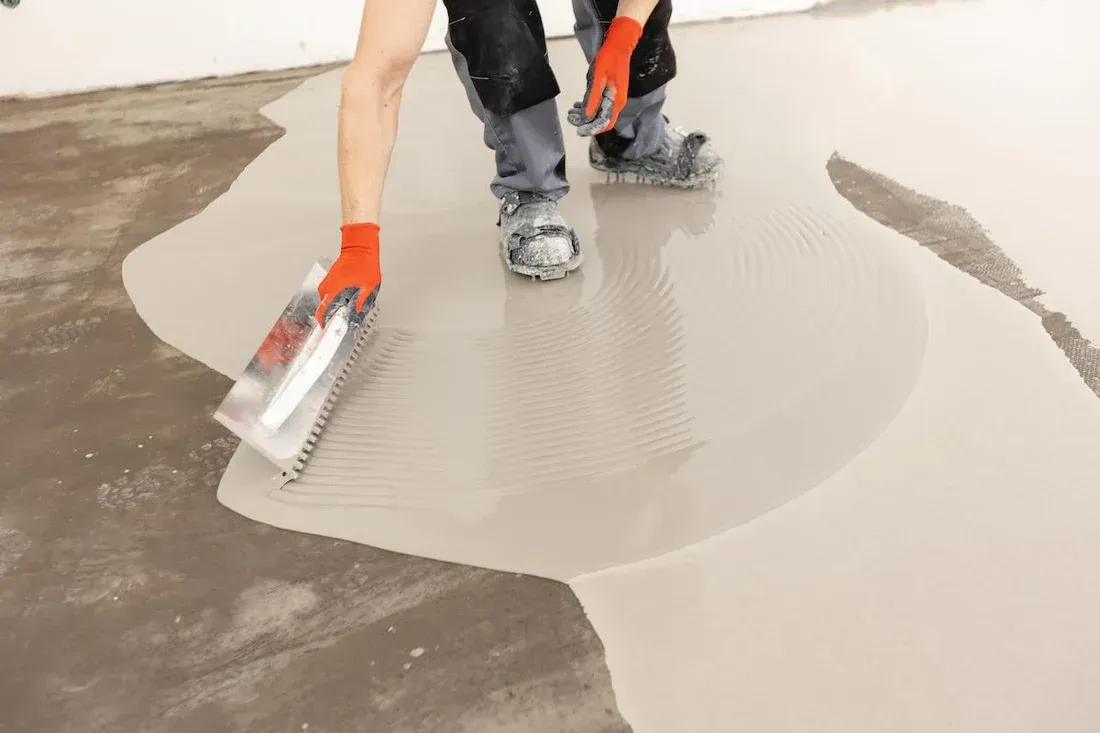
Concrete Stain and Seal Services in Lake City, FL: Complete Guide to Durable and Decorative Concrete Solutions
Unprotected concrete driveways and patios in Lake City, FL often succumb to cracking, discoloration, and mold from heat and humidity. Concrete stain and seal services in Lake City, FL deliver both vibrant color and long-lasting protection to transform surfaces into durable, decorative assets. This guide defines staining and sealing, examines key benefits, compares product types, outlines the application process, and breaks down typical service costs.
What Are Concrete Stain and Seal Services in Lake City, FL?
Concrete stain and seal services combine decorative pigment application with protective coatings to enhance and preserve concrete surfaces in Lake City, FL. Staining infuses color through chemical or water-based reactions, while sealing applies a moisture-resistant barrier against UV, oil, and wear. Together, they create vibrant finishes that withstand Florida’s climate and heavy foot or vehicle traffic.
How Does Concrete Staining Enhance Your Lake City Property?
Concrete staining infuses pigment into the surface to create custom hues, replicate natural stone, or accent design patterns. This process enhances curb appeal with rich earth tones or bold colors, conceals minor imperfections and surface irregularities, and provides a low-maintenance decorative finish that matures gracefully. These aesthetic gains set the stage for protective sealing.
What Is Concrete Sealing and Why Is It Essential?
Concrete sealing applies penetrating or film-forming sealers that block water, oil, and chemical penetration. Sealing increases resistance to cracking, spalling, and freeze-thaw damage, shields surfaces from grease and chemical stains, and reduces maintenance by creating a smooth, cleanable layer. It also locks in color while guarding against Florida’s intense sun and storms.
How Do Staining and Sealing Work Together for Concrete Durability?
Staining first sets the desired color, then sealing locks in pigment and adds an outer protective film. This process binds the stain pigments to prevent fading, creates a moisture barrier that resists water intrusion, and strengthens wear resistance to extend the lifespan of the concrete. The synergy ensures a durable finish that maintains both appearance and integrity.
What Are the Key Benefits of Concrete Staining and Sealing in Lake City?
Staining and sealing transform plain concrete into durable, attractive surfaces that boost property appeal and performance. The process enhances aesthetics, prolongs service life, improves safety, and elevates real estate value through a seamless, protective finish.
How Does Sealing Improve Concrete Durability and Longevity?
Sealing penetrates pores or forms a protective film that resists moisture, chemicals, and abrasion. It extends the lifespan of concrete by reducing deterioration and damage, minimizes hairline cracks and surface pitting, and helps prevent freeze-thaw and erosion under heavy use. Enhanced durability ultimately reduces repair frequency and cost, making it a smart long-term investment.
What Aesthetic Options Do Concrete Stains Offer?
Concrete stains are available in earth-tone blends, vibrant solids, and custom metallics to suit any design preference. Acid-based stains create a mottled, natural variegation in browns and reds, while water-based stains provide a consistent, broad color palette including pastels and brights. Custom options like stencils, borders, and graphic overlays further allow for unique decorative accents, supporting both creative landscaping and architectural themes.
How Does Sealing Prevent Mold, Mildew, and Slip Hazards?
Sealants repel water and inhibit mold spores while creating a slip-resistant surface. By blocking moisture absorption that fuels mildew growth and forming a smooth, non-porous finish that discourages algae, sealed concrete remains cleaner and safer in wet conditions. Textured or matte topcoats can further improve traction and reduce slip hazards.
Can Staining and Sealing Increase Property Value in Lake City?
Yes, well-finished concrete surfaces can boost curb appeal and contribute to higher resale prices. The enhanced durability reduces long-term maintenance costs, and the attractive finishes help properties stand out in Lake City’s competitive real estate market.
What Types of Concrete Stains and Sealers Are Best for Lake City, FL?
The best concrete stains and sealers are those that perform well under Florida’s humidity and UV exposure. Acid-based stains chemically react with cement to produce natural variegation, making them ideal for patios and driveways, while water-based stains offer more uniform colors for interiors and overlays. For sealers, penetrating silane and siloxane products provide invisible water repellency, while acrylic and polyurethane sealers form UV-stable films that resist abrasion and yellowing.
How Do Epoxy, Polyaspartic, and Polyurea Coatings Compare for Garage and Commercial Floors?
Garage and commercial floors require coatings with high chemical resistance, durability, and quick return-to-service times. Epoxy countersteps provides a robust film suitable for heavy foot traffic, polyaspartic coatings cure quickly and are UV-stable, and polyurea offers extreme flexibility and impact resistance. Choosing between them depends on the balance of budget, performance needs, and downtime allowances.
What Are the Best Sealers for Outdoor Surfaces Like Patios and Driveways?
Outdoor sealers in Lake City must resist UV rays, water exposure, and freeze-thaw cycles while maintaining slip resistance. Penetrating silanes, siloxanes, and acrylic-urethane blends are excellent choices as they deliver breathable yet durable protection for driveways, patios, and pool decks.
How Is the Concrete Stain and Seal Process Performed in Lake City, FL?
A professional stain and seal project follows a precise sequence to ensure consistent color and lasting protection. Proper surface preparation comes first, involving pressure washing to remove dirt and loose particles, degreasing to eliminate oil and contaminants, and repairing cracks or imperfections with epoxy or polymer mortar.
How Is Concrete Stain Applied for Optimal Color and Finish?
The stain is applied using rollers or sprayers in overlapping passes, allowed to penetrate, and then neutralized and rinsed to remove excess product. Careful control of dwell time ensures even coloring and reduces blotching, resulting in a smooth, natural-looking finish.
What Are the Steps for Applying Protective Sealers?
Sealant is applied in thin, even coats with a roller or sprayer, allowing each layer to dry fully before applying the next. Light sanding between coats may be used to improve adhesion and create a uniform, professional appearance.
How Should You Maintain Stained and Sealed Concrete for Long-Term Results?
Routine maintenance includes sweeping debris, washing with pH-neutral cleaners, and avoiding harsh chemicals that can damage the surface. Reapplication of sealer every two to four years, or as signs of wear emerge, helps sustain both protection and aesthetic appeal.
How Much Do Concrete Stain and Seal Services Cost in Lake City, FL?
The cost of concrete staining and sealing depends on several factors, including the size of the surface, its current condition, the complexity of staining patterns, and the type of sealer selected. Larger areas generally reduce the per-square-foot cost, while extensive repairs, intricate patterns, or premium sealers may increase overall expenses.
What Are Typical Price Ranges for Residential and Commercial Projects?
Residential driveways typically cost between $3 and $7 per square foot, while commercial projects requiring heavy-duty coatings can range from $5 to $12 per square foot. These variations reflect differences in performance requirements and material selection.
How Does Professional Service Compare to DIY in Terms of Value?
Hiring professional contractors ensures accurate surface preparation, proper product selection, and consistent application, often backed by warranty. While DIY attempts may seem cost-effective initially, they carry higher risks of early fading, peeling, or failure. Professional services deliver long-term durability, reducing the likelihood of costly rework.

Is concrete staining and sealing worth the investment in Lake City?
Yes, concrete staining and sealing offer a significant return on investment by enhancing curb appeal, protecting against the elements, reducing maintenance, and increasing property value. The durability and aesthetic improvements make it a worthwhile upgrade for Lake City properties.
How long does stained and sealed concrete last?
With proper maintenance, stained and sealed concrete can last for 10-15 years or even longer. The lifespan depends on the quality of the products used, the application process, and the level of wear and tear the surface experiences. Reapplication of sealer every 2-4 years is recommended to maintain protection.
Can I stain and seal my existing concrete driveway or patio?
Absolutely. Existing concrete surfaces in good condition can be stained and sealed. Proper surface preparation, including cleaning and crack repair, is crucial for achieving optimal results on older concrete.
What is the difference between concrete stain and paint?
Concrete stain penetrates the concrete to change its color, creating a translucent, natural-looking finish that can vary in tone. Concrete paint, on the other hand, forms a solid, opaque layer on the surface, which can chip, peel, and fade more easily over time.
How long does it take to stain and seal a concrete driveway?
The entire process, from preparation to the final coat of sealer, typically takes 2-3 days for a standard driveway. This includes time for cleaning, repairs, stain application, drying, and sealer application. Curing times for sealers can add an additional day or two before the surface can be used.
